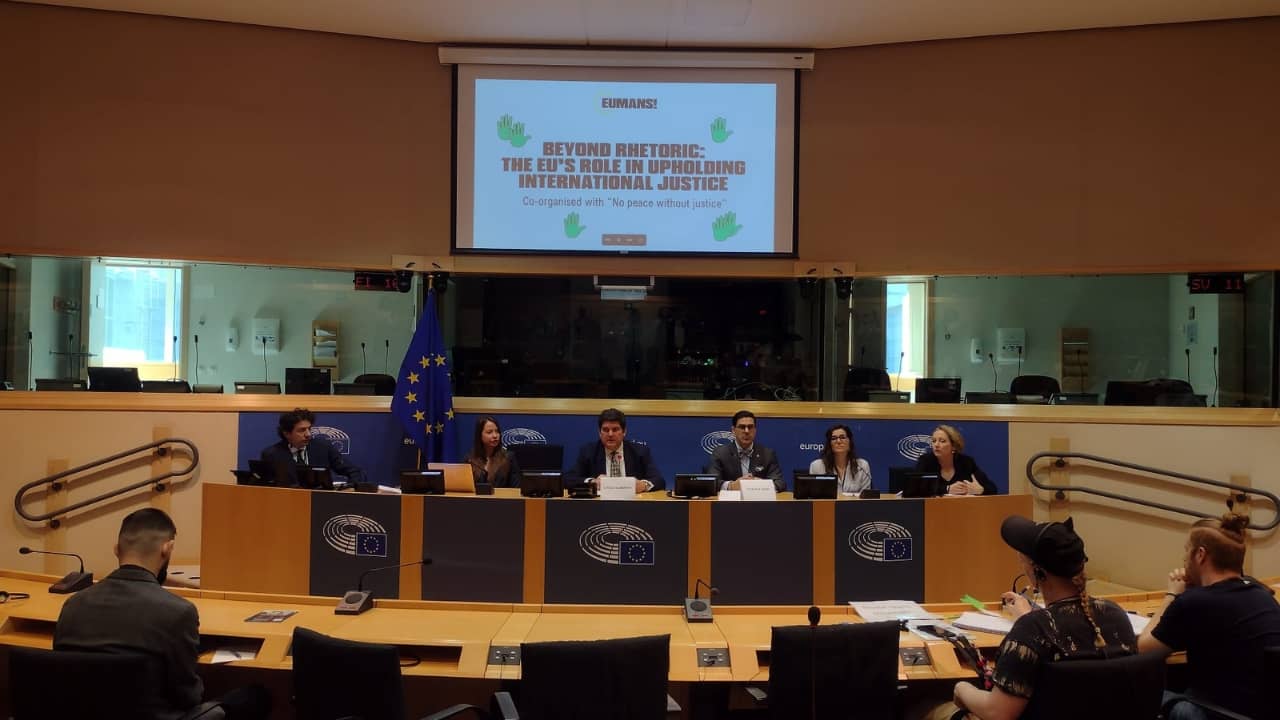Parliamentarians for Global Action (PGA) warmly saluted Portugal’s deposit of the instrument of ratification of the ICC Statute at the United Nations. Portugal becomes the 51st State to ratify the Statute, which requires 60 ratifications to enter into force.
The ratification was approved by the Portuguese Parliament on 20 December 2001, shortly after the resignation of Prime Minister António Guterres and before parliamentary activities were suspended.
"The vote came just in time to avoid Portugal’s lagging participation in the creation of this first permanent mechanism of international criminal justice”, said PGA member Mr. Jose Maghalaes, Secretary of State for Parliamentary Affairs. Maghalaes served as the link between Government and Parliament and played a crucial role in generating public and parliamentary support for the ICC process in Portugal, where a challenging constitutional revision was required.
The Portuguese Constitution was revised through a bipartisan agreement among the major political parties, enabling the resolution of the issue of life-imprisonment, which is prohibited under Portuguese law. According to the ICC’s principle of complementarity, Portugal will be able to prosecute and sentence alleged perpetrators of genocide, crimes against humanity and war crimes, without waiting for the ICC to proceed. The ICC, in fact, will have the authority to prosecute and punish only when States are unwilling or unable to do so effectively.
The first understanding that an agreement was possible in Portugal, as well as in other Lusophone (Portuguese speaking) countries, was expressed at the “Conference on ICC Ratification in Lusophone Countries,” in February 2001 by PGA and the National Assembly of Portugal in Lisbon, with the support of the European Commission and the Canadian Government. As a result of the Conference, a bipartisan agreement between Brazilian parliamentarians led to a new strategy towards ICC ratification in Brazil, which contributed to President Cardoso’s decision to recommend ratification to Parliament during the process of Constitutional amendment. At the recent Annual Forum of Parliamentarians for Global Action, Dep. Antonio Carlos Pannuzio of the Brazilian Parliament’s Foreign Relations Committee announced that by June 2002 the National process towards ratification would be completed.
In the meantime, PGA members will promote projects and action throughout the world to support the entry into force of the ICC Statute and ensure that the other 5 Lusophone countries (Angola, Cape Verde, Guinea Bissau, Mozambique and Sao Tomè et Principe) join the Statute and take part in the creation of the new Court. Additionally, East Timorese authorities have already stated that, once their country is fully recognized as a State, it too will ratify the ICC Statute.
Sixty to ninety days after the critical number of 60 States has been reached, States Parties can meet to make the Court finally operational. Recent events related to counter-terrorism underscore the importance for the International Community of putting into place international judicial remedies, such as the ICC, to international crimes.




